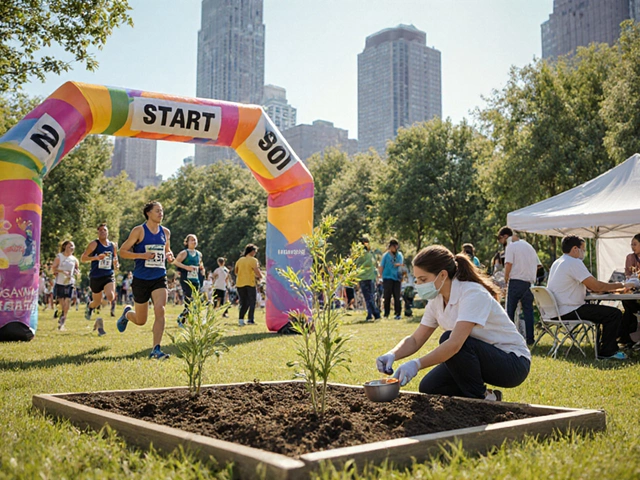Outreach Worker: What You Do and How to Begin
Ever wonder who shows up at a shelter, talks to people on the street, or organizes a food drive for the church? That's the outreach worker. They are the friendly face that connects needs with help. Whether you work for a charity, a parish, or a local council, your main job is to listen, understand, and match resources to real problems.
In practice, an outreach worker spends time on the ground. You might knock on doors in a neighbourhood, attend community meetings, or run a coffee morning at the parish hall. You’ll collect info about who needs what—housing, medical aid, school supplies—and then coordinate with volunteers, agencies, and donors to fill those gaps. It’s a mix of walking, talking, and paperwork.
The role demands a few core skills. First, good listening: people often feel judged, so a calm, non‑judgmental ear builds trust. Second, clear communication: you need to explain services simply and write concise reports for funders. Third, organization: juggling appointments, follow‑ups, and records can get hectic, so a system helps. Finally, empathy combined with a bit of grit—sometimes you’ll face tough stories, but you keep moving forward.
If you’re thinking about becoming an outreach worker, start with volunteer work. Local churches, food banks, or youth clubs often need hands‑on help. While you’re volunteering, pay attention to the process: how do they assess need? How do they coordinate with other groups? This on‑the‑job learning is priceless and shows future employers you’ve got real experience.
Training doesn’t have to be a pricey degree. Many community colleges offer short courses in social work basics, safeguarding, or mental health first aid. Online platforms also have free modules on communication and case management. Pair a certification with your volunteer hours and you’ll have a solid résumé for a paid outreach position.
Key Steps to Land Your First Outreach Job
1. Build a simple CV that highlights your volunteer work, any training you’ve completed, and the skills you’ve used—listening, organizing, teamwork. 2. Network at local events, church gatherings, or charity fairs. Let people know you’re looking for outreach roles; word‑of‑mouth works well in this field. 3. Apply to entry‑level posts such as “Community Support Assistant” or “Volunteer Coordinator.” These positions often lead to a full outreach worker role.
How Churches Use Outreach Workers
Parishes rely on outreach workers to bring the gospel to the streets. They run programmes like soup kitchens, youth mentorship, and elderly visits. By partnering with local councils, they can secure funding for transport or housing referrals. If you’re part of Holy Family Catholic Church in Patchway, the outreach worker helps connect parishioners with the wider community, turning faith into action.
Bottom line: an outreach worker is a bridge between people in need and the help that exists. With a mix of empathy, organization, and real‑world experience, you can step into this rewarding role and make a tangible difference every day.

What Do You Call Someone Who Does Outreach? Common Titles and Roles Explained
Outreach roles go by many names-worker, coordinator, specialist-each with different duties. Learn what these titles really mean and who does this vital work in communities.
Read More
Essential Duties of a Community Outreach Worker for Better Engagement
Community outreach workers are vital links between organizations and the communities they serve. Their tasks include identifying community needs, developing programs, and fostering stakeholder relationships. They actively participate in events, workshops, and campaigns to raise awareness and encourage involvement. These professionals need excellent communication skills and cultural competence to effectively connect with diverse populations.
Read More




